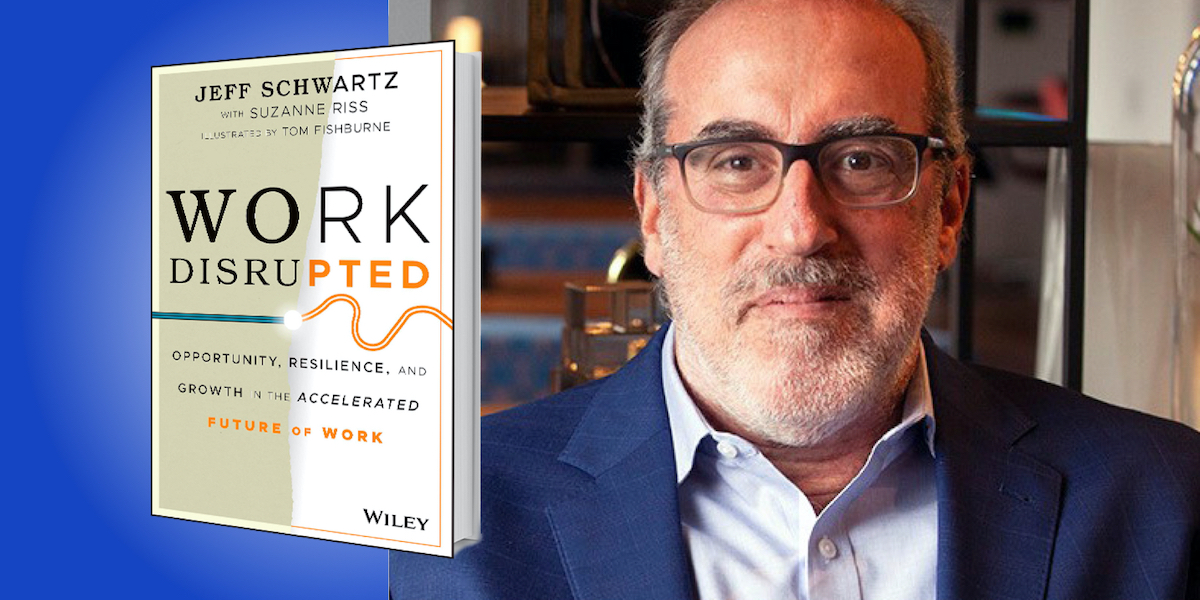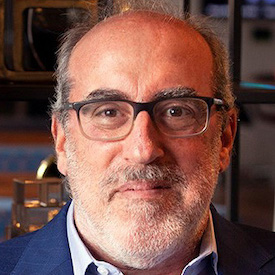Jeff Schwartz is the founding partner of Deloitte Consulting’s U.S. Future of Work practice and the global editor since 2011 of its Global Human Capital Trends report. Jeff has led research on the evolution of work, workforces, and workplace practices and advised clients around the world on workforce transformation.
Below, Jeff shares 5 key insights from his new book, Work Disrupted: Opportunity, Resilience, and Growth in the Accelerated Future of Work (available now on Amazon). Download the Next Big Idea App to enjoy more audio “Book Bites,” plus Ideas of the Day, ad-free podcast episodes, and more.
1. You can’t navigate 21st-century work and careers with 20th-century maps and mental models.
Albert Einstein once remarked, “You can’t use an old map to explore a new world”—although a lot of leaders are trying to do just that today. Instead, we need to explore mental models of work beyond the simple automation of work, substituting human labor for technology. We need to focus on superteams, teams of people and technology working together to create new value, and not just optimizing current processes for productivity. We also need a fuller view of integrated workforce ecosystems and the open talent economy, from full-time employees to gig workers. And finally, the workplace is no longer just a physical space—it’s a matter of the strategies for how we work, wherever we are.
2. The future of work is about more than acceleration—it’s about disruption.
Anne-Marie Slaughter, the President of New America, wrote in March of 2020, “The coronavirus, and its economic and social fallout, is a time machine to the future. Changes that many of us predicted would happen over decades are instead taking place in the span of weeks.” In 2020, we experienced the future of work—more virtual, more team-based, more agile, more uncertain, and more integrated with our personal lives. The challenge now is to make it work for all of us going forward.
“You can’t use an old map to explore a new world.”
3. It’s time to create and imagine preferred futures.
All too often, we’ve viewed the future of work as a way to produce the same work, using the same work processes, with little bits of new technology thrown in. However, the real opportunities do not lie in doing the same things that we’re doing today, only a little bit better and a little bit faster. As John Hagel, the former Chairman of Deloitte’s Center for Edge has commented: “Everyone is talking about the future of work. But few are asking the most fundamental question. What should that work be?” Indeed, how can we create a future of work that not only creates economic value, but also reflects our social and communal values?
4. Rethink leadership and management for resilience.
Resilience is a useful guidepost to the organizational and management practices we will need going forward. Many of these trends provide a sense of the frontiers for resilience in leadership:
- Coaching and teaming: Not just focusing on supervision, control, compliance, and measuring performance, but actively improving the performance of the team and individual workgroup members.
- Designing work: Leaders need to design the future as much as they need to manage it.
- Sensing, experimenting, and inspiring: The opportunity is to inspire other leaders, at all levels, around organizational purpose in what John Seely Brown has described as a “whitewater world”—a world defined by constant changes and flows.
- Elevating insights from psychology and cultural anthropology: In 2002, psychologist Daniel Kahneman won a Nobel Prize for his work in behavioral economics, highlighting the role of human biases in decisions. So leaders today need to recognize that we’re all choice architects now. Leaders can also view the world through the lens of cultural anthropology, which brings into focus the categories and context of the world in which we’re leading.
“How can we create a future of work that not only creates economic value, but also reflects our social and communal values?”
5. A new future requires new growth playbooks for individuals, leaders, and citizens.
- Individuals: Embrace adaptation and a growth mindset. Curate a portfolio of experiences and a range of skills that will be essential in 100-year, multi-stage lives. Build the skills to thrive in teams, drive your own development, and integrate combinations of education, work, and personal pursuits throughout your life.
- Business and Organizational Leadership: Focus on creating new value and augmentation—not replacement and automation. Partner with the workforce to build career marketplaces and opportunity pathways for growth and development. And design ways of working to integrate our personal and professional lives, accessing talent from anywhere.
- Citizens and Members of Society: Rethink and reset education, labor regulations, job transitions, and ethics to empower the future of work. Recognize the impact of work and workplace design on the future of local communities and our shared global environment.
For more Book Bites, download the Next Big Idea App today:
































